Introduction:
Summer 2019 went by fast. Faster than the gaotie at full speed. That’s a little too fast. I’m hitting the brakes for a few moments to reflect on the journey that I had this Summer. Namely, traveling to China for the first time. This wasn’t a spontaneous trip that I planned last minute. And it wasn’t a vacation either. It was all part of the program Princeton in Beijing. It’s a Chinese language program that rapidly increases the student’s Chinese level and — because it’s located in Beijing — lets him gauge what China is really like. But I won’t bore you with administrative details; if you want to know more about the program scroll down to the end of the post.
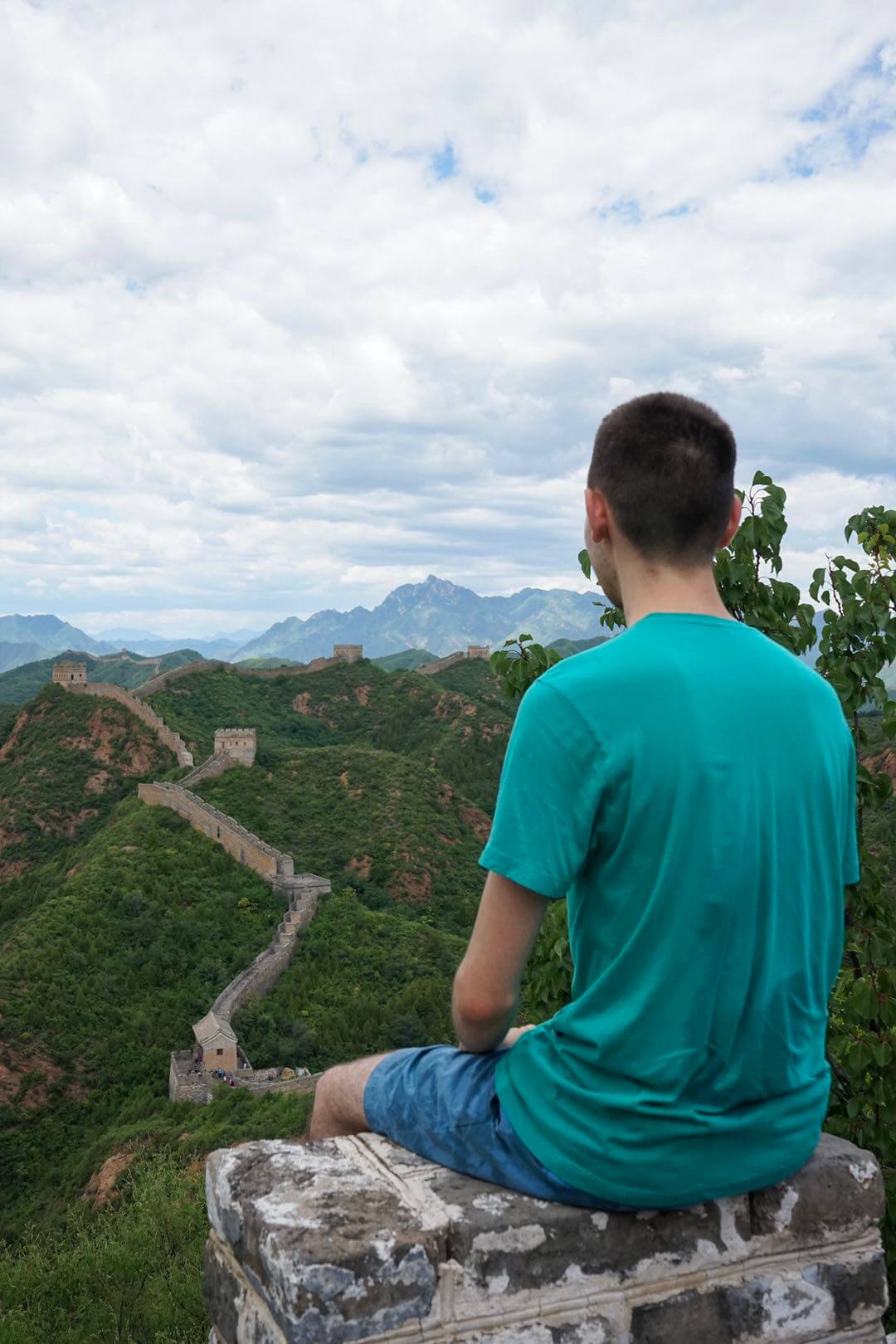
Language
At the beginning of the program each student signed a language pledge that looked like this:
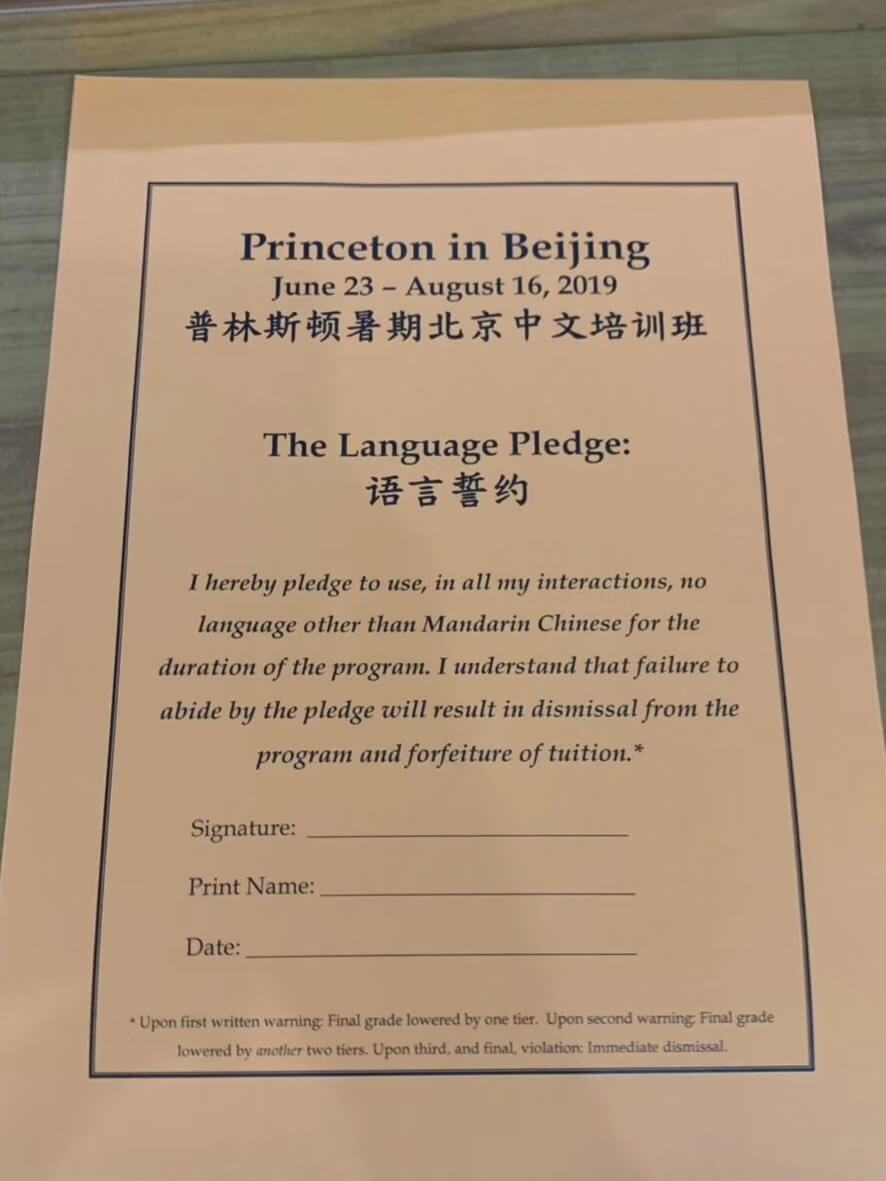
We were compelled to only speak Chinese 24/7, be it on campus with our fellow classmates, in a park with a grandpa practicing qigong, or asking the waiter for food recommendations at a bomb noodle shop. Not that the last two could speak much English. But, whenever a local approached me wanting to practice his English, I always told them: “不能说英文,我签了一个语言誓约”. This often sparked an expression of curiosity on their faces. Then it led to random conversations. All in Chinese.
A funny thing happens when you try to only speak a language you are barely familiar with. The first couple of weeks are painful. You struggle even with the most basic structures. You check your dictionary thousands of times a day. You try to utter a complex thought, only to fail miserably. The days slowly linger on and you’re homesick out of your mind. You want to be able to fully express yourself. You curse the language pledge. You call your parents to speak in your native tongue, only to realize that they’re still asleep because of the time difference. Then you curse the language pledge some more. After a month, your brain gets used to the discomfort. Sentences in Chinese come out a little bit more naturally. Talking to your friends back home becomes surprisingly difficult since you can’t remember the word for “supermarket” or “should” in your native language. As you get used to Chinese, you become more confident. This confidence brings about a fondness not only of the language but also of the people, the environment, and the Chinese everyday life.
Then, the day comes when the language pledge wears off. I feel a sense of relief being able to finally speak English. Out of habit, I ask my American roommate something in Chinese and he – out of habit as well – responds in Chinese. Then we look at each other puzzled and say “Why are we speaking in Chinese? We could be speaking English, this is so weird!” The following week is full of occurrences of this sort. But it just shows how much a language pledge and an immersive environment can influence what language you think and speak in.
Classes:
The classes at Princeton in Beijing are intense. You typically get up at around 7 AM. You quickly do your morning routine. You drowsily go through your review sheets and list of new words. Then you rush out of your dorm room and head to class. Along the way, you stop by the shop conveniently located on the second floor of your dormitory to buy the usual baozi and youtiao. You take the newly acquired sustenance to class and arrive just in time to take the xiao kao. The classes then commence and you have four hours of constant speaking and listening to Chinese with two teachers and 4 other classmates(class size depends on the level, but it varies around 4 and 6 students per class). The teachers are recent grads, so it’s easy to make friends because they have the same interests as the students. However, they are highly trained and make the classes highly engaging. At noon it’s time for lunch. And this is where we get to one of the best parts:
Food:
If you were to go to Beijing just to eat good food, it would still be completely worth it. You can go explore on your own to eat food like this:
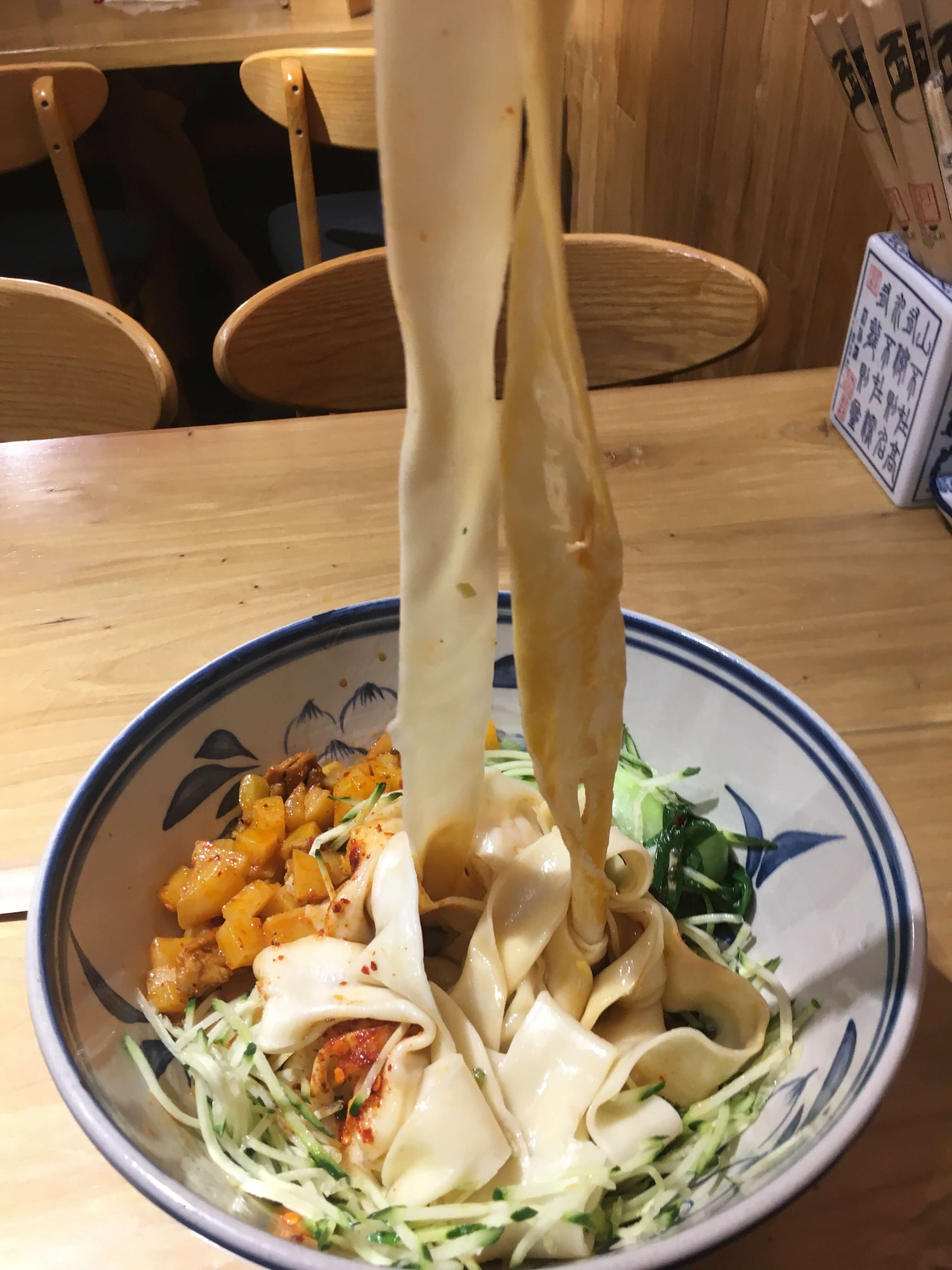
Or go with a bunch of friends to eat something along the lines of this:

Beijing offers food from any province. So it caters to any food palate. I’ve experienced combinations of ingredients and flavors that I didn’t know even existed. Chewy cow stomach dipped in sweet/savory sauce with the right amount of spiciness? Count me in. And when you’re too lazy to get out of your own dorm you can just order delivery. It’s cheap and fast. And it’s all done through with a few taps of your smartphone. With the same app, you can get movie seats, buy train tickets, get products delivered to your doorstep, and so forth. This convenience does come with its drawbacks, but that’s for another post.

Environment:
Beijing is a fusion of new and old. Hopping on the subway to go hang out in Sanlitun or hailing a Didi to go check out the myriads of malls can make you forget that this city has a history of thousands of years. It’s a place of consumerism and dizzying skyscrapers.
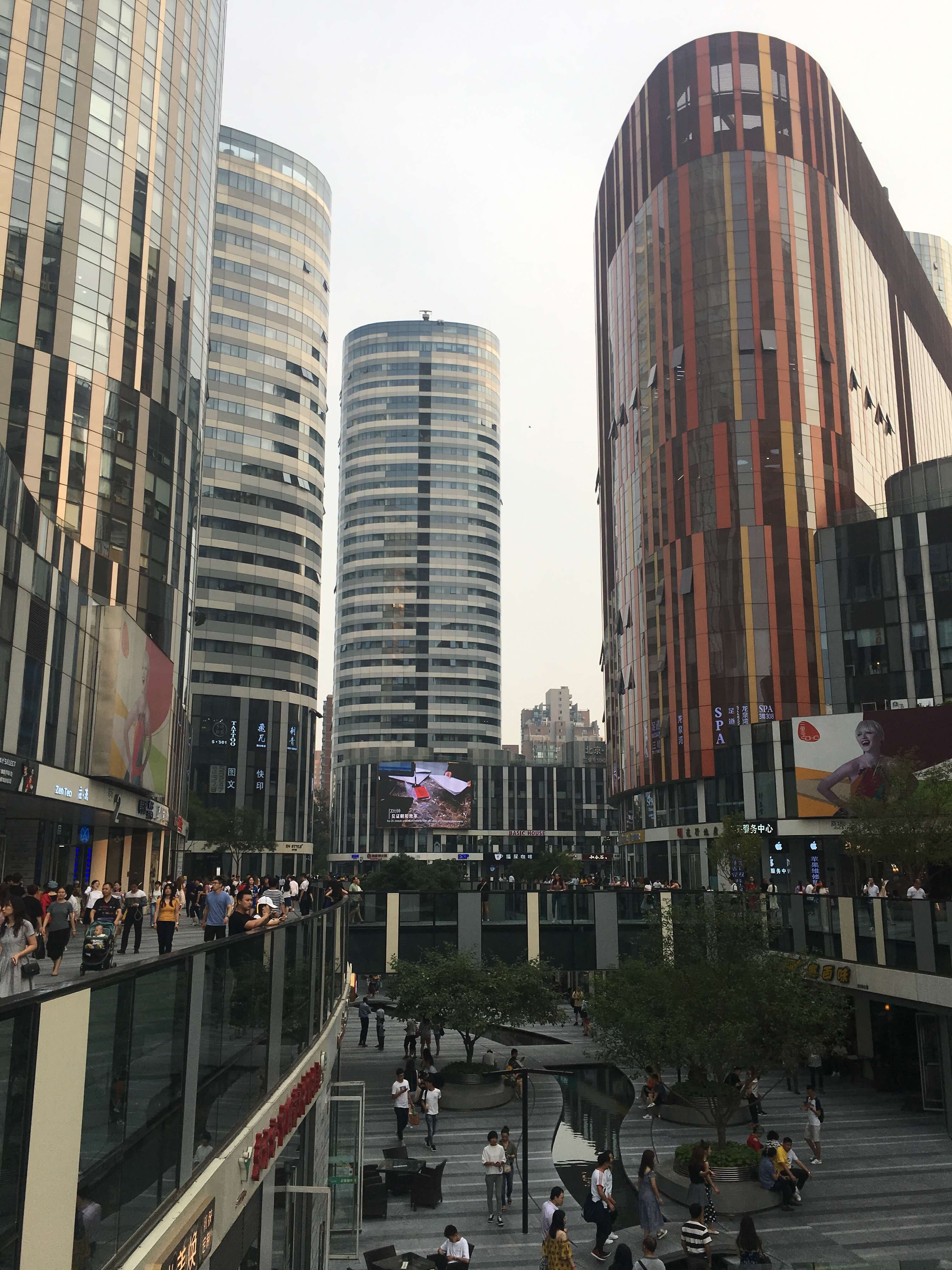
But if you stray away from these places you begin to see mementos of a past that doesn’t want to let go: Hutongs that echo a simpler life; but also majestic architecture that displays China’s dynastic history.
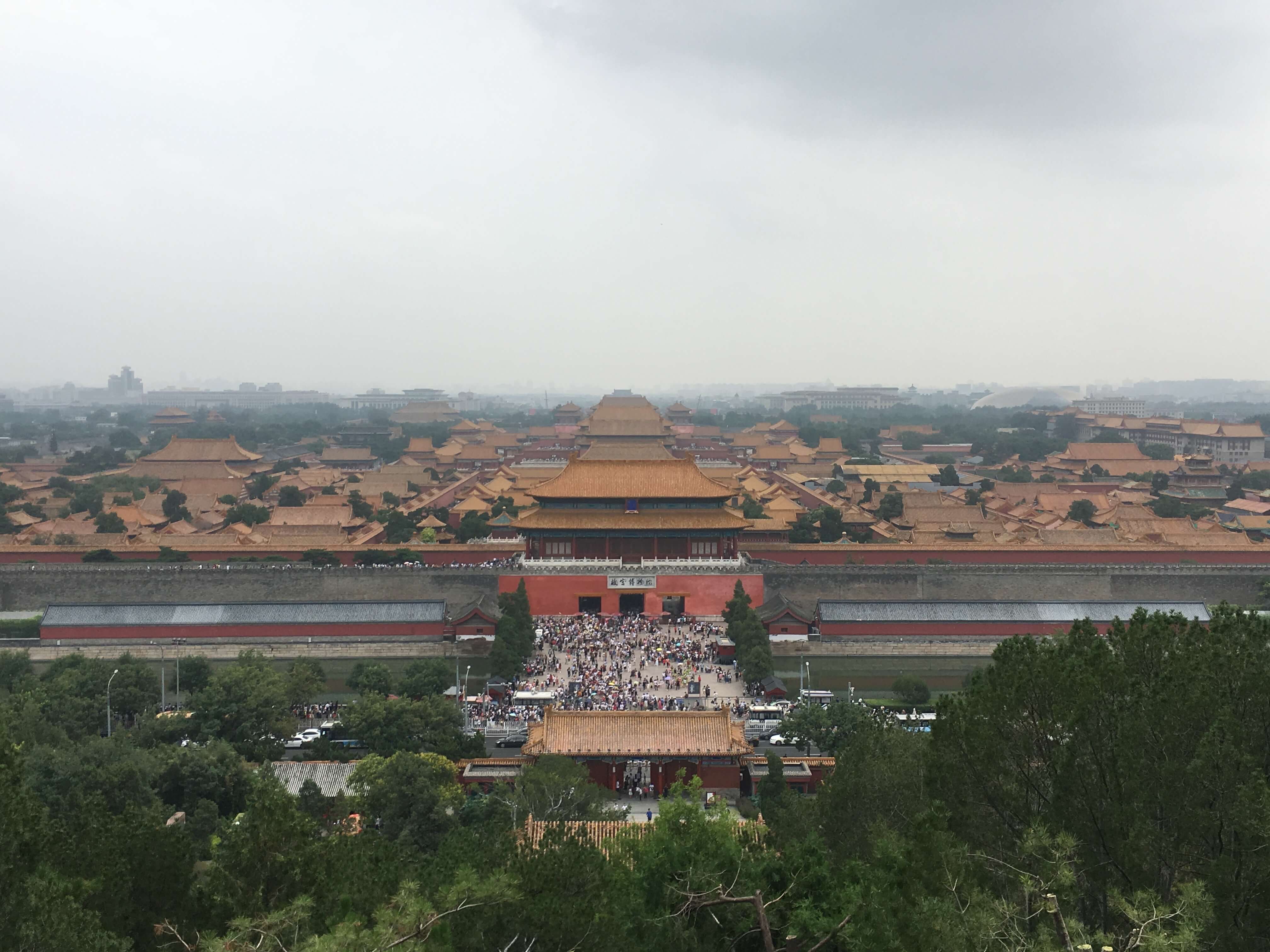
Conclusion:
I liked Beijing. Don’t get me wrong, it’s not perfect. The air pollution is still at times serious. The traffic is intimidating and you get PTSD just from crossing the street. You can still notice people spitting randomly in public places. Some are either nationalistic or way too polite with foreigners (e.g. getting free drinks at the bar just because you’re a laowai). Yet I would still go back. The majority of people I met were helpful and willing to chat. The subway system is intuitive and efficient. And the air is actually getting better. Of course, going back a second time wouldn’t be as organized as this Summer. Every basic amenity was provided by Princeton in Beijing. All that remained was for me to learn the language and explore Beijing.
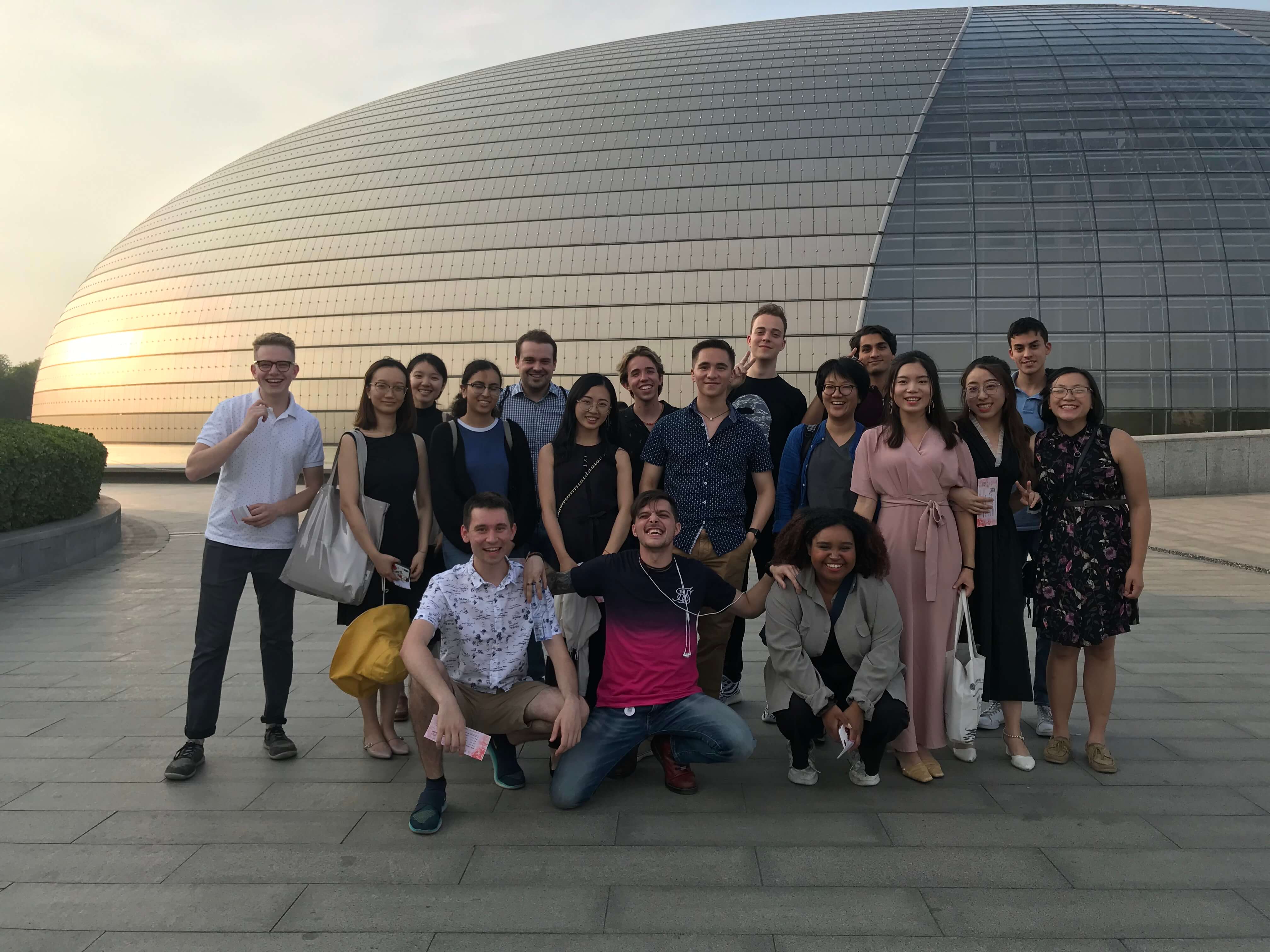
Thanks for reading the post! If you want to learn more about Princeton in Beijing, you can do so here. If you have any questions, concerns, or want to say anything that crosses your mind, comment down below! I would also like to extend my thanks to the Wesleyan alumnus that sponsored this experience, Mr. Sha Ye, and to the Wesleyan CEAS department and Fries Center for Global Studies for helping me along the process.
———————
Subscribe for new posts HERE

